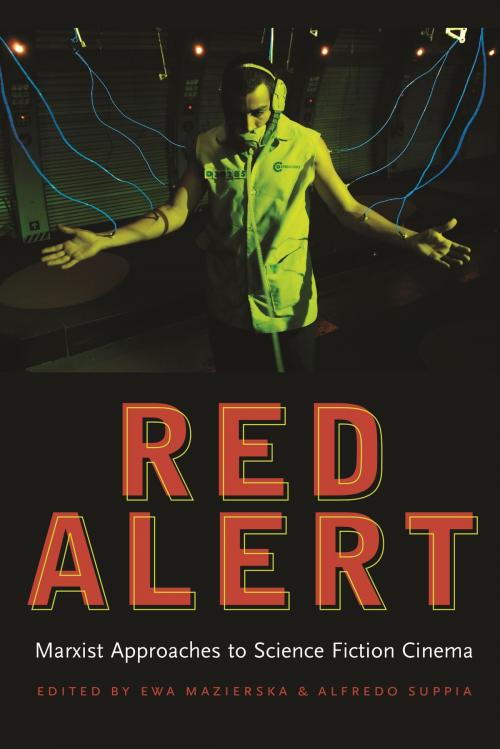Red Alert
Marxist Approaches to Science Fiction Cinema
Fiction & Literature, Literary Theory & Criticism, Science Fiction, Nonfiction, Art & Architecture, General Art, Art Technique, Social & Cultural Studies, Political Science| Author: | Ewa Mazierska | ISBN: | 9780814340127 |
| Publisher: | Wayne State University Press | Publication: | May 2, 2016 |
| Imprint: | Wayne State University Press | Language: | English |
| Author: | Ewa Mazierska |
| ISBN: | 9780814340127 |
| Publisher: | Wayne State University Press |
| Publication: | May 2, 2016 |
| Imprint: | Wayne State University Press |
| Language: | English |
In Red Alert: Marxist Approaches to Science Fiction Cinema, editors Ewa Mazierska and Alfredo Suppia argue that Marxist philosophy, science fiction, and film share important connections concerning imaginings of the future. Contributors look at themes across a wide variety of films, including many international co-productions to explore individualism versus collectivism, technological obstacles to travel through time and space, the accumulation of capital and colonization, struggles of oppressed groups, the dangers of false ideologies, and the extension of the concept of labor due to technological advances. Red Alert considers a wide swath of contemporary international films, from the rarely studied to mainstream science fiction blockbusters like The Matrix. Contributors explore early Czechoslovak science fiction, the Polish-Estonian co-productions of director Marek Piestrak, and science fiction elements in 1970s American blaxploitation films. The collection includes analyses of recent films like Transfer (Damir Lukacevic), Avalon (Mamoru Oshii), Gamer (Mark Neveldine and Brian Taylor), and District 9 and Elysium (Neill Blomkamp), along with more obscure films like Alex Rivera’s materialist science fiction works and the Latin American zombie films of Pablo Parés, Hernán Sáez, and Alejandro Brugués. Contributors show that the ambivalence and inner contradictions highlighted by the films illustrate both the richness of Marx’s legacy and the heterogeneity and complexity of the science fiction genre. This collection challenges the perception that science fiction cinema is a Western or specifically American genre, showing that a broader, transnational approach is necessary to fully understand its scope. Scholars and students of film, science fiction, and Marxist culture will enjoy Red Alert.
In Red Alert: Marxist Approaches to Science Fiction Cinema, editors Ewa Mazierska and Alfredo Suppia argue that Marxist philosophy, science fiction, and film share important connections concerning imaginings of the future. Contributors look at themes across a wide variety of films, including many international co-productions to explore individualism versus collectivism, technological obstacles to travel through time and space, the accumulation of capital and colonization, struggles of oppressed groups, the dangers of false ideologies, and the extension of the concept of labor due to technological advances. Red Alert considers a wide swath of contemporary international films, from the rarely studied to mainstream science fiction blockbusters like The Matrix. Contributors explore early Czechoslovak science fiction, the Polish-Estonian co-productions of director Marek Piestrak, and science fiction elements in 1970s American blaxploitation films. The collection includes analyses of recent films like Transfer (Damir Lukacevic), Avalon (Mamoru Oshii), Gamer (Mark Neveldine and Brian Taylor), and District 9 and Elysium (Neill Blomkamp), along with more obscure films like Alex Rivera’s materialist science fiction works and the Latin American zombie films of Pablo Parés, Hernán Sáez, and Alejandro Brugués. Contributors show that the ambivalence and inner contradictions highlighted by the films illustrate both the richness of Marx’s legacy and the heterogeneity and complexity of the science fiction genre. This collection challenges the perception that science fiction cinema is a Western or specifically American genre, showing that a broader, transnational approach is necessary to fully understand its scope. Scholars and students of film, science fiction, and Marxist culture will enjoy Red Alert.















